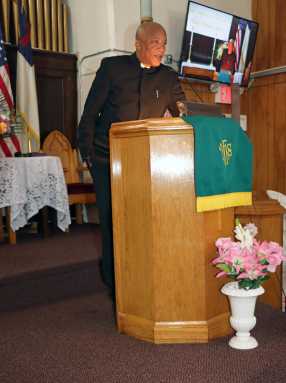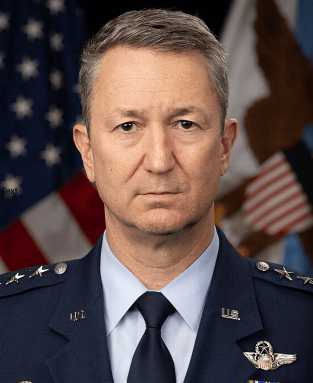Listeners:
Top listeners:
00:00
00:00
volume_up
chevron_left
-
play_arrow
RadioJLR Just Press Play
Grenadian academic, community activist underscores ‘Unity in Diversity’

share
close
During the 136th Anniversary Worship Service at Fenimore Street United Methodist Church (FSUMC) in Brooklyn on Oct. 26, Prof. Martin Felix, a Grenadian academic and community activist, emphasized the importance of the theme ‘Unity in Diversity,’ describing it as both timeless and timely.
Prof. Felix, who coordinates the Caribbean Studies program at the Fashion Institute of Technology (FIT), State University of New York (SUNY), shared that the theme made him recall two meaningful songs from his youth — one from childhood and one from later years — as he reflected on ‘Many Branches, One Vine: A Legacy of Unity in Diversity.’
He said, “The hymn ‘All Things Bright and Beautiful/All Creatures Great and Small’ celebrates God’s creation in all its variety. Bob Marley’s ‘Forever Loving Jah’ reminds us that ‘Everything in life got its purpose/find its reason.’ Even Martin Luther King has repeatedly highlighted these ancient wisdoms.”
“Both songs reveal a profound truth: diversity is God’s design – not an accident,” Prof. Felix continued. “Whether in nature or humanity, variety reflects divine intelligence and creativity.”
He said the message of divine unity is echoed throughout Scripture, noting that, in Galatians 3:28, Paul writes: “There is neither Jew nor Greek, slave nor free, male nor female, for you are all one in Christ Jesus.”
“Paul reminds us that, in Christ, all human divisions fall away,” Prof. Felix said. “Our value is not determined by race, status, or gender, but by our shared identity as children of God.”
Likewise, he noted that 1 Corinthians 12:12–14 teaches that the body of Christ is composed of many parts, each with a distinct purpose.
“No one part can say to the other, ‘I don’t need you,’” he said. “Our strength lies precisely in our diversity — many branches, one vine.”
Prof. Felix said Ephesians 2:14 also adds, “For He Himself is our peace, who has made the two one and has destroyed the dividing wall of hostility.”
He said that, through Christ, “walls of separation become bridges of reconciliation.
“This theme of bridges and walls brings us to your church’s remarkable history,” he said. “Your founding coincided with one of Brooklyn’s great symbols — the Brooklyn Bridge, which opened in 1883, just six years before this church was established.”
Prof. Felix said the Brooklyn Bridge was then the longest suspension bridge in the world.
He continued, “Most importantly, the Brooklyn Bridge connected communities that had once been divided. In a similar way, for 136 years your church has served as a spiritual bridge, connecting people of different cultures, backgrounds, and generations through the love of Christ.”
Prof. Felix noted that while the church has built bridges, there are now physical and ideological walls emerging worldwide, such as at the US-Mexico border, the Poland-Belarus divide, between Argentina and Paraguay, in Spain and Morocco, Finland and Russia, Israel and Egypt/Palestine/Syria, India, Myanmar and Kashmir, between Kazakhstan and Uzbekistan, Turkmenistan and Uzbekistan, and even between Haiti and the Dominican Republic—which used to form one island prior to colonial times.
“These are signs of insecurity, fear, and division,” he continued. “And this is not new because, as you know, the bible has a lot to say about walls.”
Prof. Felix said there are also symbolic walls, noting that, in his first week in office, President Trump issued a series of executive orders (EOs) targeting Diversity, Equity, and Inclusion programs in the public and private sectors.
He added that these executive orders aim to stop or hinder legal efforts to promote equal opportunity for minorities, including African Americans and women, creating new barriers between groups. He also noted that current Supreme Court discussions may lead to the reversal of important provisions from the Voting Rights Act of 1965, a key achievement of the civil rights movement, putting many hard-won rights at risk.
“Those that were won during the Reconstruction period, during the 92 years of Jim Crow, and those that were won from the day of Martin Luther King’s assassination up to the present, are targeted to be wiped out,” he lamented. “And this is not an exaggeration. We need to begin rebuilding the coalitions that gave us these victories back in the Civil Rights era.”
But Prof. Felix said walls are not new to America. He said that, long before the 1889 founding of FSUMC, “this land was home to the Lenape and Canarsie peoples, who were dispossessed of their homelands by colonizers who claimed to act in the name of Christianity.”
Prof. Felix said that after the founding of these lands, Africans were enslaved and brought in chains as early as 1619 to Jamestown, even though the Caribbean had suffered from the transatlantic slave trade as far back as 1517.
He stressed that the African Caribbean presence has been in the Americas since the earliest days, as colonists managed plantations and moved enslaved people between the Americas and the Caribbean.
He continued, “This group included both enslaved workers and enslavers, like Alexander Hamilton, who was born in Nevis. Enslaved Africans built much of the early city, including its roads, churches, and homes. While the legacy of the enslavers is still visible, those they enslaved have largely been erased from memory.”
Prof. Felix said his research led him to the discovery that the United Methodist Church (UMC) nationwide has a formal commitment to anti-racism and social justice.
He said the UMC’s anti-racist policy seeks to challenge racism in all its forms, both within and outside the church, and calls for local churches to take action through activities such as social justice advocacy, dismantling institutional racism, and creating opportunities for dialogue about race and reconciliation.
“This is remarkable,” he said. “Unity is not sameness; diversity reflects a commitment to dismantle walls. It is the courage to love across differences — to see God’s image reflected in every face.”
He said that, over the past 136 years, FSUMC has embodied that vision — “welcoming immigrants, empowering women in leadership, embracing diversity in worship, and opening its doors to all of God’s children.
“Each generation added a new branch to the vine — making it stronger, more resilient, and more reflective of God’s kingdom on earth,” Prof. Felix said. “This is unity in diversity made visible: many branches, one vine.
“As we celebrate today, let us recommit ourselves to that divine calling,” he added. “Let us be the living body of the Most High — different yet united, rooted in love, bearing fruit in justice, and building bridges where others build walls.
“Let us also join in the ongoing call for reparations and reconciliation, affirming that true unity cannot exist without justice,”
Prof. Felix continued. “May God continue to bless this church, strengthen its ministry, and make it a shining example of what divine unity looks like in our world today.
Written by: Adm
Rate it
© 2025. All Rights Reserved by Radio-JLR


